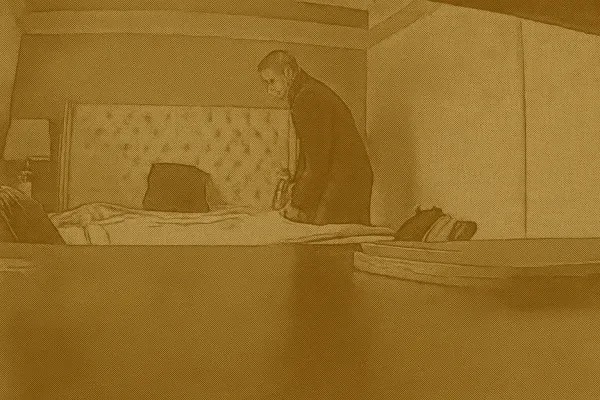Based on coverage from Castanet and Rachelle Moores Personal Facebook.
Kamloops Man Sentenced for Spiking Wife's Water
In a case that has gripped Kamloops, Cory Dwayne Crichton, 54, has been sentenced to four months of house arrest after admitting to spiking his wife's water bottle with hydrochlorothiazide, a prescription drug used to treat high blood pressure. This unsettling incident left his wife, Rachelle Moores, fearing for her life and dealing with lasting anxiety.
The saga began in March 2024, when Moores noticed an odd taste in her water. Her suspicions led her to set up a hidden camera in their Rivershore home, which captured Crichton tampering with her water bottle. The police were called, and subsequent tests confirmed the presence of the drug, which can cause dizziness and headaches in large doses. Despite the evidence, Crichton was charged with administering a noxious substance to annoy or aggrieve rather than to harm, as no intent to endanger Moores' life was found.
Support The Canada Report and help keep it ad-free and independent — click here before you shop online . We may receive a small commission if you make a purchase. Your support means a lot — thank you.
Victim's Fears and Legal Proceedings
Moores' victim impact statement revealed the depth of her fear and anxiety following the incident. She described how the experience left her questioning every drink and bite of food, worried about being harmed again. Although she suffered no severe side effects, she recounted symptoms like exhaustion and hair loss, which she now believes were linked to Crichton's actions.
The legal process was prolonged due to the time taken for police testing, with charges only laid in July 2025. Crichton, who has a brief criminal history involving Moores, pleaded guilty early in the proceedings. His lawyer described him as remorseful, although Moores disputes this, suggesting his regret was more about being caught than genuine contrition.
Domestic Abuse in Various Forms
The case highlights the often-hidden nature of domestic abuse. Moores expressed relief at the sentence, which includes an eight-month conditional order, restitution for her counselling and security expenses, and a prohibition on contacting her. She emphasized that abuse can take many forms, not all of which are visible or loud. Her experience underscores the importance of recognizing and addressing all types of abuse, not just the physical.
Moores' decision to share her story is a powerful reminder of the complexities of domestic abuse and the courage required to speak out. Her hope is that by telling her truth, she can help others who may be in similar situations. As she moves forward, Moores continues to grapple with trust issues but remains determined to reclaim her life and advocate for awareness around domestic abuse.








